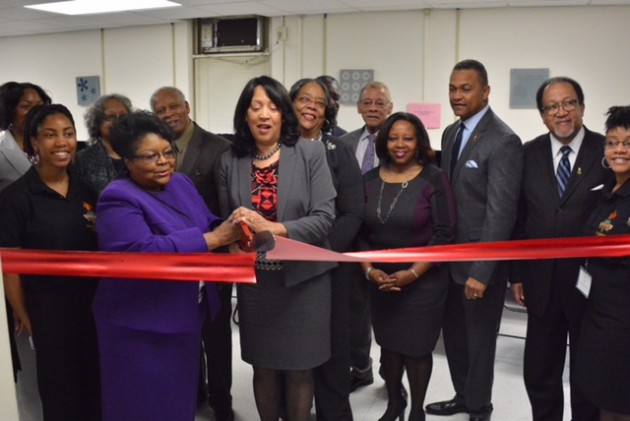Recent reports show that African Americans are most likely thelast ones jumping in line to join the United States Armed Forces.The Wall Street Journal reported that the U.S. Army has not beensuccessful in recruiting a sufficient amount of African Americansoldiers. This trend is blamed on the mass movement of troops tothe Middle East and the continuation of the war in Iraq.Percentages of white soldiers enlisting have been steady since thewar and developments in the Middle East became U.S. priorities.
According to the Army’s recruiting commandshow, African Americans made up about 15.6 percent of the totalenlistment pool in 2004, which is down from the 21 percent in 2002.On the other hand, the percentage of whites enlisting in the armedforces has remained steady, white enlistees making up about 62.7percent in 2002, and 65.2 percent in 2004 of the enlistment pool.
Army officials maintain that recruiting issubject to a number of variables, and that the drop in blackrecruitment may not signal a serious problem. The Army also saysthat the drop in black recruits is a positive sign, because theywant to build an organization that correlates to the demographicmakeup of the nation. In 2003, African Americans made up 24 percentof the Army, but only about 13 percent of the U.S. population.
“We want the Army to be representative of theoverall population. Even with recent drops, black recruits arestill at or above their percentage in the overall population,” saidDouglas Smith, a spokesman for the Army’s recruiting command, to APreporters.
When contacted on the issue of why there hasbeen a decline in black recruits and the feelings that the blackcommunity has towards the war, Major Goldman of Howard University’sAir Force ROTC responded,” I would prefer to not say anything,because I feel it would be inappropriate because of my position.”The Army ROTC declined comment as well.
The recent decline in black recruits comes ata time when the Pentagon is expected to provide more soldiers thatare ready to fight in war. In August, the Army offered $10,000bonuses to recruits, and as of Oct.6, it added a $3,000 “quick”bonus for recruits who are ready to enter immediately. August wasalso when the Army increased the award for college to $70,000 from$50,000. Pentagon officials note that such incentives often appealto potential recruits from less wealthy families.
Historically, black recruits have been in”behind –the-line” support roles. Pentagon statistics showthat in 2003, 67 percent of all black soldiers were in supportunits. From the beginning, enemy fighters have concentrated theirattacks on soldiers in support units. Soldiers in support unitsmake of the more than the 1,000 Americans that have been killed inIraq.
At the beginning of the war in Iraq Pvt.Jessica Lynch, a white female soldier in an Army maintenancecompany was taken hostage by Iraqis. This story was extensivelychronicled by the Pentagon and the U.S. media.
The story of Spc. Shoshona Johnson, a blackwoman, who was in the same maintenance unit as Pvt.Lynch, receivedfar less attention.
“Whether the Pentagon was fair in itstreatment of the two women is beside the point, the perception isall that matters. The Department of Defense needed a hero, and itwas nice to have one who was pretty and blond,” said Davis Segal, aUniversity of Maryland sociology professor, to AP reporters.
“I believe African Americans do not want tofight in a war when they are treated like second rate citizens intheir own country,” said Randy Odaga, a Howard University student.


